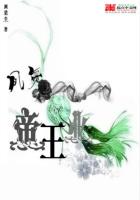THE NEXT THING I remember is waking up with a feeling as if I had had a frightful nightmare, and seeing before me a terrible red glare, crossed with thick black bars. I heard voices, too, speaking with a hollow sound, and as if muffled by a rush of wind or water: agitation, uncertainty, and an all-predominating sense of terror confused my faculties. Ere long, I became aware that someone was handling me; lifting me up and supporting me in a sitting posture: and that more tenderly than I had ever been raised or upheld before. I rested my head against a pillow or an arm, and felt easy.
In five minutes more, the cloud of bewilderment dissolved: I knew quite well that I was in my own bed, and that the red glare was the nursery fire. It was night: a candle burned on the table; Bessie stood at the bed-foot with a basin in her hand, and a gentleman sat in a chair near my pillow, leaning over me.
I felt an inexpressible relief, a soothing conviction of protection and security, when I knew that there was a stranger in the room: an individual not belonging to Gateshead, and not related to Mrs. Reed. Turning from Bessie (though her presence was far less obnoxious to me than that of Abbot, for instance, would have been), I scrutinized the face of the gentleman: I knew him; it was Mr. Lloyd, an apothecary, sometimes called in by Mrs. Reed when the servants were ailing: for herself and the children she employed a physician.
“Well, who am I?”he asked.
I pronounced his name, offering him at the same time my hand: he took it, smiling and saying, “We shall do very well by and by. ”Then he laid me down, and addressing Bessie charged her to be very careful that I was not disturbed during the night. Having given some further directions, and intimated that he should call again the next day, he departed; to my grief: I felt so sheltered and befriended while he sat in the chair near my pillow; and as he closed the door after him, all the room darkened and my heart again sank: inexpressible sadness weighed it down.
“Do you feel as if you should sleep, Miss?”asked Bessie rather softly.
Scarcely dared I answer her; for I feared the next sentence might be rough. “I will try. ”
“Would you like to drink, or could you eat anything?”
“No, thank you, Bessie. ”
“Then I think I shall go to bed, for it is past twelve o'clock but you may call me if you want anything in the night. ”
Wonderful civility this! It emboldened me to ask a question.
“Bessie, what is the matter with me? Am I ill?”
“You fell sick, I suppose, in the red room with crying; you'll be better soon, no doubt. ”
Bessie went into the housemaid's apartment which was near. I heard her say-
“Sarah, come and sleep with me in the nursery; I daren't for my life be alone with that poor child tonight; she might die: it's such a strange thing she should have that fit: I wonder if she saw anvthing. Missis was rather too hard. ”
Sarah came back with her; they both went to bed; they were whispering together for half an hour before they fell asleep. I caught scraps of their conversation, from which I was able only too distinctly to infer the main subject discussed.
“Something passed her, all dressed in white, and vanished”-“A great black dog behind him”-“Three loud raps on the chamber door”-“A light in the churchyard just over his grave”-etc. , etc.
At last both slept: the fire and the candle went out. For me, the watches of that long night passed in ghastly wakefulness; ear, eye, and mind were alike strained by dread: such dread as children only can feel.
No severe or prolonged bodily illness followed this incident of the red room: it only gave my nerves a shock; of which I feel the reverberation to this day. Yes, Mrs. Reed, to you I owe some fearful pangs of mental suffering. But I ought to forgive you, for you knew not what you did: while rending my heartstrings, you thought you were only uprooting my bad propensities.
Next day, by noon, I was up and dressed, and sat wrapped in a shawl by the nursery hearth. I felt physically weak and broken down: but my worst ailment was an unutterable wretchedness of mind: a wretchedness which kept drawing from me silent tears; no sooner had I wiped one salt drop from my cheek than another followed. Yet I thought, I ought to have been happy, for none of the Reeds were there; they were all gone out in the carriage with their mama: Abbot, too, was sewing in another room, and Bessie, as she moved hither and thither, putting away toys and arranging drawers, addressed to me every now and then a word of unwonted kindness. This state of things should have been to me a paradise of peace, accustomed as I was to a life of ceaseless reprimand and thankless fagging; but, in fact, my racked nerves were now in such a state that no calm could soothe, and no pleasure excite them agreeably.
Bessie had been down into the kitchen, and she brought up with her a tart on a certain brightly painted china plate, whose bird of paradise, nestling in a wreath of convolvulus and rosebuds, had been wont to stir in me a most enthusiastic sense of admiration; and which plate I had often petitioned to be allowed to take in my hand in order to examine it more closely, but had always hitherto been deemed unworthy of such a privilege. This precious vessel was now placed on my knee, and I was cordially invited to eat the circlet of delicate pastry upon it. Vain favor coming, like most other favors long deferred and often wished for, too late! I could not eat the tart: and the plumage of the bird, the tints of the flowers, seemed strangely faded: I put both plate and tart away. Bessie asked if I would have a book: the word book acted as a transient stimulus, and I begged her to fetch Gulliver's Travels from the library. This book I had again and again perused with delight; I considered it a narrative of facts, and discovered in it a vein of interest deeper than what I found in fairy tales: for as to the elves, having sought them in vain among foxglove leaves and bells, under mushrooms and beneath the ground-ivy mantling old wall nooks, I had at length made up my mind to the sad truth that they were all gone out of England to some savage country, where the woods were wilder and thicker, and the population more scant; whereas, Lilliput and Brobdingnag being, in my creed, solid parts of the earth's surface, I doubted not that I might one day, by taking a long voyage, see with my own eyes the little fields, houses, and trees, the diminutive people, the tiny cows, sheep, and birds of the one realm; and the cornfields forest-high, the mighty mastiffs, the monster cats, the towers like men and women, of the other. Yet, when this cherished volume was now placed in my hand-when I turned over its leaves, and sought in its marvelous pictures the charm I had, till now, never failed to find-all was eerie and dreary; the giants were gaunt goblins, the pigmies malevolent and fearful imps, Gulliver a most desolate wanderer in most dread and dangerous regions. I closed the book, which I dared no longer peruse, and put it on the table, beside the untasted tart.
Bessie had now finished dusting and tidying the room, and having washed her hands, she opened a certain little drawer, full of splendid shreds of silk and satin, and began making a new bonnet for Georgiana's doll. Meantime she sang: her song was-
In the days when we went gipsying,
A long time ago.
I had often heard the song before, and always with lively delight; for Bessie had a sweet voice-at least, I thought so. But now, though her voice was still sweet, I found in its melody an indescribable sadness. Sometimes, preoccupied with her work, she sang the refrain very low, very lingeringly;“A long time ago”came out like the saddest cadence of a funeral hymn. She passed into another ballad, this time a really doleful one.
My feet they are sore, and my limbs they are weary;
Long is the way, and the mountains are wild;
Soon will the twilight close moonless and dreary
Over the path of the poor orphan child.
Why did they send me so far and so lonely,
Up where the moors spread and gray rocks are piled?
Men are hard-hearted, and kind angels only
Watch o'er the steps of a poor orphan child.
Yet distant and soft the night breeze is blowing,
Clouds there are none, and clear stars beam mild;
God, in His mercy, protection is showing,
Comfort and hope to the poor orphan child.
Ev'n should I fall o'er the broken bridge passing,
Or stray in the marshes, by false lights beguiled,
Still will my Father, with promise and blessing,
Take to His bosom the poor orphan child.
There is a thought that for strength should avail me,
Though both of shelter and kindred despoiled;
Heaven is a home, and a rest will not fail me;
God is a friend to the poor orphan child.
“Come, Miss Jane, don't cry,” said Bessie, as she finished. She might as well have said to the fire“don't burn!”but how could she divine the morbid suffering to which I was a prey? In the course of the morning Mr. Lloyd came again.
“What, already up!”said he, as he entered the nursery. “Well, nurse, how is she?”
Bessie answered that I was doing very well.
“Then she ought to look more cheerful. Come here, Miss Jane: your name is Jane, is it not?”
“Yes, sir, Jane Eyre. ”
“Well, you have been crying, Miss Jane Eyre, can you tell me what about? Have you any pain?”
“No, sir. ”
“Oh! I daresay she is crying because she could not go out with Missis in the carriage,”interposed Bessie.
“Surely not! Why, she is too old for such pettishness. ”
I thought so too; and my self-esteem being wounded by the false charge, I answered promptly, “I never cried for such a thing in my life: I hate going out in the carriage. I cry because I am miserable. ”
“Oh fie, Miss!”said Bessie.
The good apothecary appeared a little puzzled. I was standing before him; he fixed his eyes on me very steadily: his eyes were small and gray; not very bright, but I daresay I should think them shrewd now: he had a hard-featured yet good-natured-looking face. Having considered me at leisure, he said-
“What made you ill yesterday?”
“She had a fall,”said Bessie, again putting in her word.
“Fall! why that is like a baby again! Can't she manage to walk at her age? She must be eight or nine years old. ”
“I was knocked down,”was the blunt explanation jerked out of me by another pang of mortified pride: “but that did not make me ill,”I added; while Mr. Lloyd helped himself to a pinch of snuff.
As he was returning the box to his waistcoat pocket, a loud bell rang for the servants' dinner, he knew what it was. “That's for you, nurse,”said he;“you can go down; I'll give Miss Jane a lecture till you come back. ”
Bessie would rather have stayed; but she was obliged to go, because punctuality at meals was rigidly enforced at Gateshead Hall.
“The fall did not make you ill; what did, then?”pursued Mr. Lloyd, when Bessie was gone.
“I was shut up in a room where there is a ghost, till after dark. ”
I saw Mr. Lloyd smile and frown at the same time: “Ghost! What, you are a baby after all! You are afraid of ghosts?”
“Of Mr. Reed's ghost I am: he died in that room, and was laid out there. Neither Bessie nor anyone else will go into it at night, if they can help it; and it was cruel to shut me up alone without a candle-so cruel that I think I shall never forget it. ”
“Nonsense! And is it that makes you so miserable? Are you afraid now in daylight?”
“No; but night will come again before long: and besides-I am unhappy-very unhappy, for other things. ”
“What other things? Can you tell me some of them?”
How much I wished to reply fully to this question! How difficult it was to frame any answer! Children can feel, but they cannot analyze their feelings; and if the analysis is partially effected in thought, they know not how to express the result of the process in words. Fearful, however, of losing this first and only opportunity of relieving my grief by imparting it, I, after a disturbed pause, contrived to frame a meager, though as far as it went, true response.
“For one thing, I have no father or mother, brothers or sisters. ”
“You have a kind aunt and cousins. ”
Again I paused; then bunglingly enounced:
“But John Reed knocked me down, and my aunt shut me up in the red room. ”
Mr. Lloyd a second time produced his snuffbox.
“Don't you think Gateshead Hall a very beautiful house?”asked he. “Are you not very thankful to have such a fine place to live at?”
“It is not my house, sir; and Abbot says I have less right to be here than a servant. ”
“Pooh! you can't be silly enough to wish to leave such a splendid place?”
“If I had anywhere else to go, I should be glad to leave it; but I can never get away from Gateshead till I am a woman. ”
“Perhaps you may-who knows? Have you any relations besides Mrs. Reed?”
“I think not, sir. ”
“None belonging to your father?”
“I don't know: I asked Aunt Reed once, and she said possibly I might have some poor, low relations called Eyre, but she knew nothing about them. ”
“If you had such, would you like to go to them?”
I reflected. Poverty looks grim to grown people; still more so to children: they have not much idea of industrious, working, respectable poverty; they think of the word only as connected with ragged clothes, scanty food, tireless grates, rude manners, and debasing vices: poverty for me was synonymous with degradation.
“No; I should not like to belong to poor people,”was my reply.
“Not even if they were kind to you?”
I shook my head: I could not see how poor people had the means of being kind; and then to learn to speak like them, to adopt their manners, to be uneducated, to grow up like one of the poor women I saw sometimes nursing their children or washing their clothes at the cottage doors of the village of Gateshead: no, I was not heroic enough to purchase liberty at the price of caste.
“But are your relatives so very poor? Are they working people?”
“I cannot tell; Aunt Reed says if I have any, they must be a beggarly set: I should not like to go a begging. ”
“Would you like to go to school?”
Again I reflected: I scarcely knew what school was; Bessie sometimes spoke of it as a place where young ladies sat in the stocks, wore backboards, and were expected to be exceedingly genteel and precise; John Reed hated his school, and abused his master: but John Reed's tastes were no rule for mine, and if Bessie's accounts of school discipline (gathered from the young ladies of a family where she had lived before coming to Gateshead) were somewhat appalling, her details of certain accomplishments attained by these same young ladies were, I thought, equally attractive. She boasted of beautiful paintings of landscapes and flowers by them executed; of songs they could sing and pieces they could play, of purses they could net, of French books they could translate; till my spirit was moved to emulation as I listened. Besides, school would be a complete change: it implied a long journey, an entire separation from Gateshead, an entrance into a new life.
“I should indeed like to go to school,”was the audible conclusion of my musings.
“Well, well; who knows what may happen?”said Mr. Lloyd, as he got up: “The child ought to have change of air and scene,”he added, speaking to himself, “nerves not in a good state. ”
Bessie now returned; at the same moment the carriage was heard rolling up the gravel walk.
“Is that your mistress, nurse?”asked Mr. Lloyd: “I should like to speak to her before I go. ”
Bessie invited him to walk into the breakfast room, and led the way out. In the interview which followed between him and Mrs. Reed, I presume, from after-occurrences, that the apothecary ventured to recommend my being sent to school; and the recommendation was no doubt readily enough adopted: for as Abbot said, in discussing the subject with Bessie when both sat sewing in the nursery one night, after I was in bed, and, as they thought, asleep, “Missis was, she dared say, glad enough to get rid of such a tiresome, ill-conditioned child, who always looked as if she were watching everybody, and scheming plots underhand. ”Abbot, I think, gave me credit for being a sort of infantine Guy Fawkes.
On that same occasion I learned, for the first time, from Miss Abbot's communications to Bessie, that my father had been a poor clergyman; that my mother had married him against the wishes of her friends, who considered the match beneath her; that my grandfather Reed was so irritated at her disobedience, he cut her off without a shilling; that after my mother and father had been married a year, the latter caught the typhus fever while visiting among the poor of a large manufacturing town where his curacy was situated, and where that disease was then prevalent; that my mother took the infection from him, and both died within a month of each other.
Bessie, when she heard this narrative, sighed and said, “Poor Miss Jane is to be pitied, too, Abbot. ”
“Yes,”responded Abbot, “if she were a nice, pretty child, one might compassionate her forlornness; but one really cannot care for such a little toad as that. ”
“Not a great deal, to be sure,”agreed Bessie: “at any rate a beauty like Miss Georgiana would be more moving in the same condition. ”
“Yes, I dote on Miss Georgiana!”cried the fervent Abbot. “Little darling!-with her long curls and her blue eyes, and such a sweet color as she has; just as if she were painted!-Bessie, I could fancy a Welsh rabbit for supper. ”
“So could I-with a roast onion. Come, we'll go down. ”They went.















